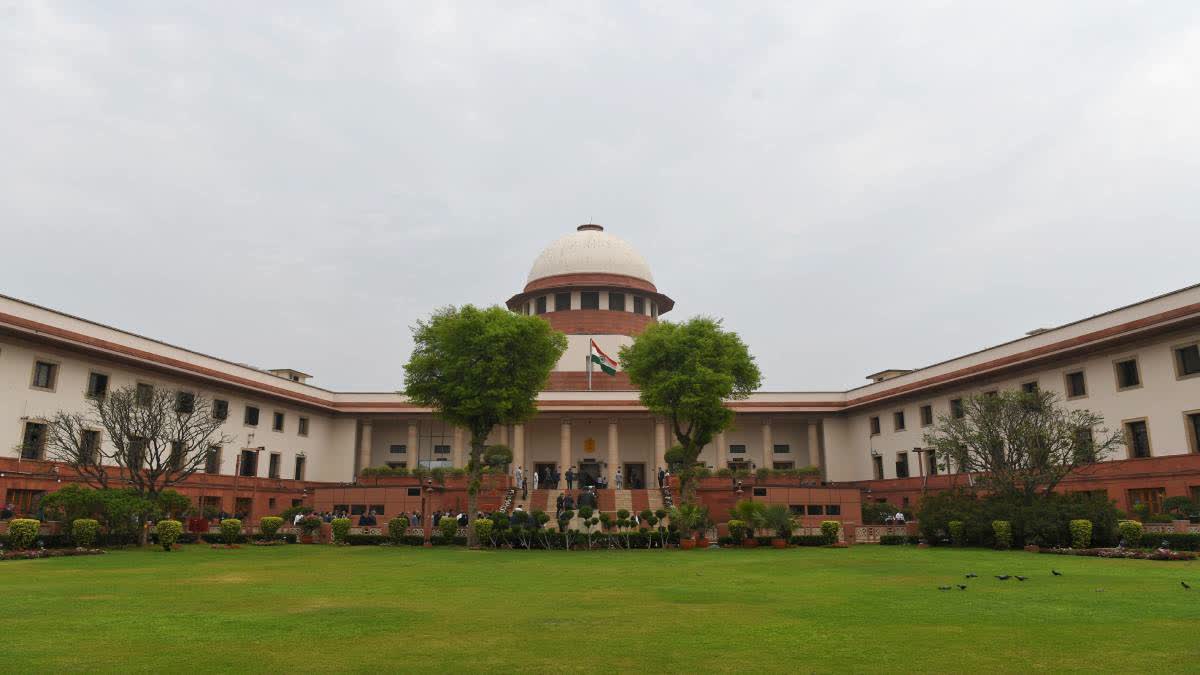New Delhi: Setting aside the Bombay High Court's verdict directing the Brihanmumbai Municipal Corporation (BMC) to transfer five acres of land in Worli, Mumbai to Century Textiles and Industries Ltd, now known as Aditya Birla Real Estate Limited, the Supreme Court said when a land allocated for accommodating the poor under a special scheme is commercially exploited, it's a direct affront to the spirit of enactment.
"When land allocated under a special scheme, particularly one centred on ‘poorer classes’ accommodation, is sought to be commercially exploited, it represents a direct affront to the spirit of the enactment," the apex court observed.
A divisional bench of Justices Vikram Nath and Prasanna B Varale ruled in favour of the BMC in the judgment delivered on January 7. The civic body moved the apex court challenging the correctness of the judgment of the High Court on March 14, 2022, allowing the plea. It directed Century Textiles to execute a formal conveyance of the plot in Lower Parel, Mumbai within eight weeks.
The apex court's verdict centred around two core issues. These are, whether BMC was legally bound to convey the leased land to Century Textiles after the expiry of the lease and whether the petition filed after a delay of over six decades was maintainable.
The bench said the contractual language and statutory purpose are both premised on ensuring that the "demised premises" remain dedicated to providing adequate housing to those struggling to find decent living conditions in a rapidly expanding metropolis.
"To ignore or circumvent these conditions would nullify the intended social function of the property and transform a carefully crafted scheme of public welfare into a mere instrument of private profit", the bench observed, and said the civic body was neither legally obligated to convey the land nor at fault for not executing the deed.
The bench further said the entire arrangement is anchored on a quid pro quo as the property is leased on special terms, with minimal rent and under carefully prescribed conditions, to ensure that the less-privileged receive tangible benefits.
"When the lessee attempts to convert this arrangement into a vehicle for commercial gain, it repudiates the fundamental bargain. The public trust reposed in the private entity to serve a greater good is thus betrayed”, the judgment, running for 81 pages, said.
"Rather than addressing housing inadequacies and improving urban life for those in need, the resource would be diverted to profit-making ventures that do nothing to alleviate the conditions of the underserved. This conduct amounts to an abuse of beneficial legislation," the bench said.
The bench said the Bombay Improvement Trust Transfer Act 1925 was intended to secure broader societal goals — better sanitation, improved living standards and well-planned urban growth that includes and benefits marginalised communities.
"Allowing Respondent No.1 to disregard these obligations would open the door to hollowing out the protections and advantages established by the statute. It would set a precedent where statutory schemes designed to uplift vulnerable groups could be co-opted for purely commercial ends, undermining the trust and faith that must exist between public authorities, private actors and the most vulnerable segments of the population", the judgement said.
The bench said for 51 years, the company did not raise any demand whatsoever for the execution of the conveyance deed and their contention that they were in constant communication with the corporation officers, though orally, the fact remains that no legal proceedings were undertaken during this period.
"Even after giving the notice under Section 527 of the Mumbai Municipal Corporation Act, 1888, Respondent No.1 (company) took no steps for a period of 10 years by filing a suit or approaching the Court even though the period of limitation prescribed under the above provision was six months. Ten years after the legal notice, they preferred the writ petition, i.e. after 61 years of the cause of action having arisen," the bench said.
The case is regarding a plot of land measuring 23,000 square yards originally leased to Century Textiles under the provisions of the City of Bombay Improvement Act of 1898. The lease agreement, part of a poorer classes' accommodation scheme initiated in 1918, required the lessee firm to construct housing for workers. Century Textiles fulfilled its obligations by building 476 dwellings and 10 shops by 1925.
However, following the expiry of the lease in 1955, the company did not pursue the conveyance of the land until 2006, when it was issued a legal notice. A plea filed in 2016 was allowed by the Bombay High Court which directed the BMC to transfer the land title to Century Textiles.
Also Read:
- Supreme Court: Parents Could Be Compelled To Provide Necessary Funds For Daughter’s Education
- SC Grants Interim Relief To Telugu Actor Mohan Babu In Case Of Assault On Journalist
